DFM 2020: The 8th IEEE International Workshop on Data Flow Models & Extreme-Scale Computing
Call for Papers
Goal of the workshop:
The workshop aims to highlight advancements to event-driven and data-driven models of computation for extreme scale computing, as well as parallel and distributed computing for high-performance computing. It also aims at fostering exchanges between dataflow practitioners, both at the theoretical and practical levels.
Workshop theme:
With the advent of true many-core systems, it has become unreasonable to solely rely on control-based parallel models of computation to achieve high scalability. Dataflow-inspired models of computation, once discarded by the sequential programming crowd, are once again considered serious contenders to help increase programmability, performance, and scalability in highly parallel and extreme scale systems, but also power and energy efficiency, as they (at least partially) relieve the parallel application programmer from performing tedious and perilous synchronization bookkeeping, but also provide clear scheduling points for the system software and hardware. However to reach such high scalability levels, extreme scale systems rely on heterogeneity, hierarchical memory subsystems, etc. Meanwhile, legacy programming and execution models, such as MPI and OpenMP, add asynchronous and data-driven constructs to their models, all the while trying to take into account the very complex hardware targeted by parallel applications. Consequently, programming and execution models, trying to combine both legacy control flow-based and data flow-based aspects of computing, have also become increasingly complex to handle. Developing new models and their implementation, from the application programmer level, to the system level, down to the hardware level is key to provide better data- and event-driven systems which can efficiently exploit the wealth of diversity that composes current high-performance systems, for extreme scale parallel computing. To this end, the whole stack, from the application programming interface down to the hardware must be investigated for programmability, performance, scalability, energy and power efficiency, as well as resiliency and fault-tolerance.
Scope of the workshop:
Researchers and practitioners all over the world, from both academia and industry, working in the areas of language, system software, and hardware design, parallel computing, execution models, and resiliency modeling are invited to discuss state of the art solutions, novel issues, recent developments, applications, methodologies, techniques, experience reports, and tools for the development and use of data flow models of computation. Topics of interest include, but are not limited to, the following:
- Programming languages and compilers for existing and new languages — in particular single-assigned and functional languages
- System software: Operating systems, runtime systems
- Hardware design: ASICs and reconfigurable computing (FPGAs)
- Resiliency and fault-tolerance for parallel and distributed systems
- New data flow inspired execution models — in particular strict and non-strict models
- Hybrid system design for control-flow and data-flow based systems
- Position papers on the future of data flow in the era of many-core systems and beyond
Likely participants: Computer engineers and computer scientists, parallel computing and compiler researchers for high-performance computing.
DFM 2020 is sponsored by the Parallel Models & Systems: Data Flow and Beyond Special Technical Community.
Special Technical Communities (STCs) are technical, educational and professional resources on emerging topics that are outside or beyond the scope of the Computer Society’s Technical Committees. They are online communities of computing professionals who share a common technical, career, or technical interest, and which can be created around any set of ideas relevant to the members and professional colleagues of the Computer Society. Their membership is open to both members and non-members and available at no cost. Furthermore, anyone, member or not, can participate and can propose the creation of new STCs. For information about IEEE Computer Society Special Technical Communities, please visit https://www.computer.org/communities/special-technical-communities.
Workshop Chair
Stéphane Zuckerman, Laboratoire ETIS — Université Paris-Seine, Université de Cergy-Pontoise, ENSEA, CNRS
Email: stephane.zuckerman@u-cergy.fr

